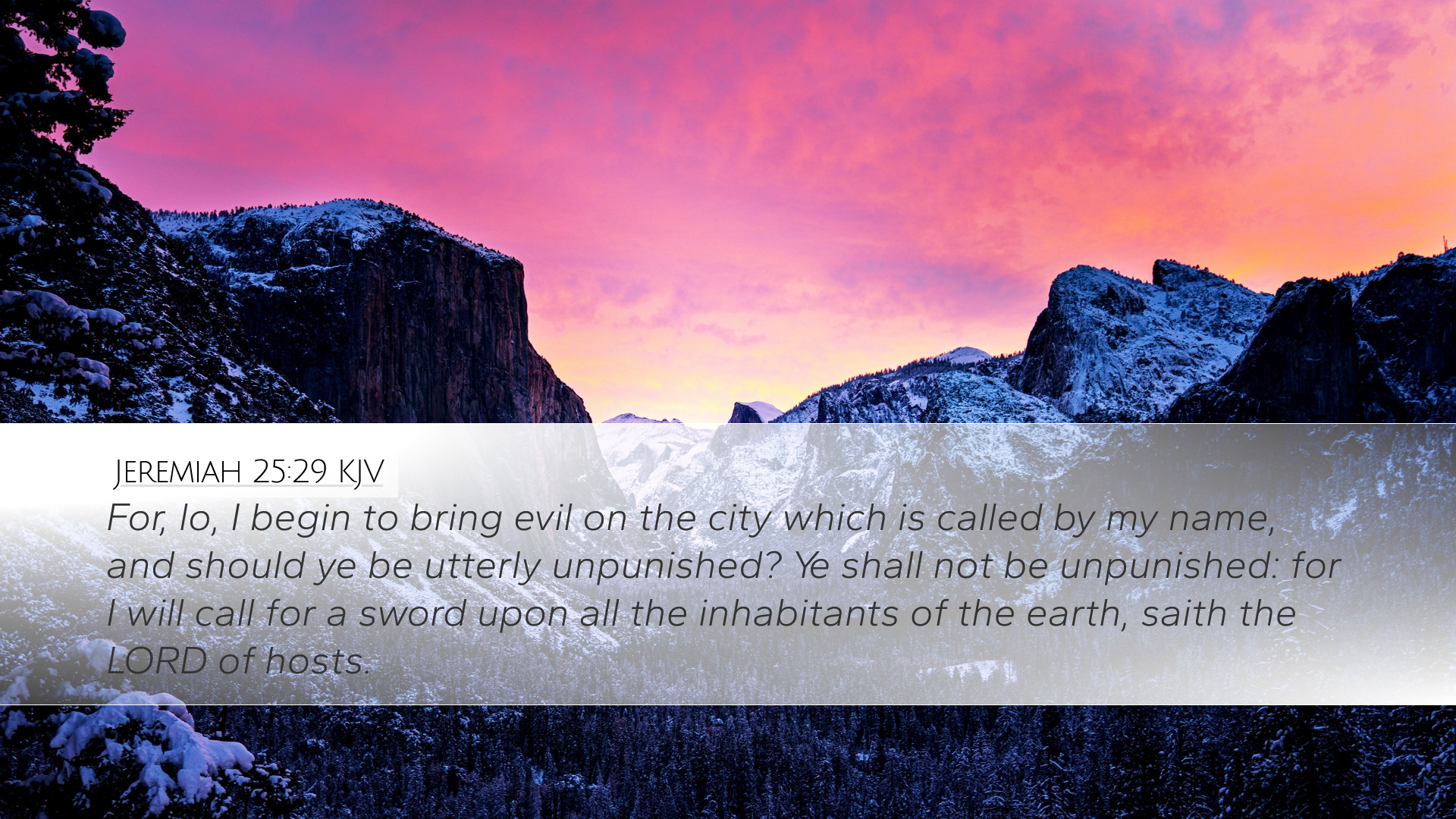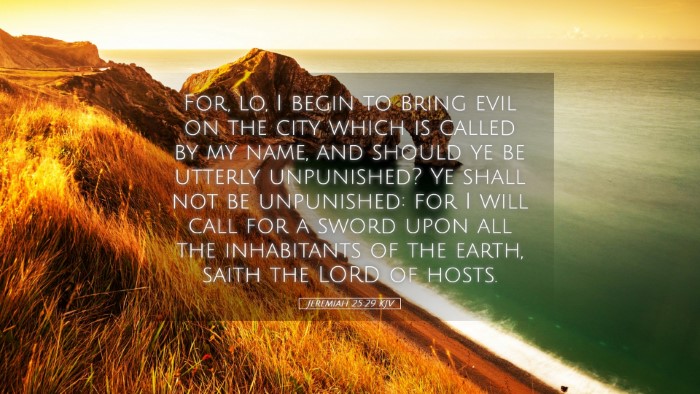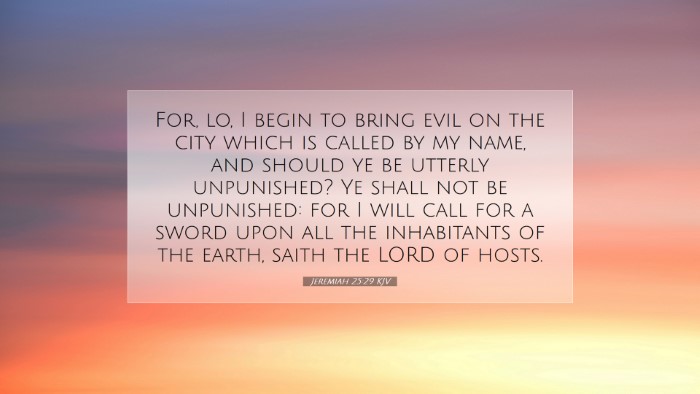Commentary on Jeremiah 25:29
Bible Verse: "For, lo, I begin to bring evil on the city which is called by my name, and should ye be utterly unpunished? Ye shall not be unpunished: for I will call for a sword upon all the inhabitants of the earth, saith the LORD of hosts."
Introduction
Jeremiah 25:29 stands as a powerful proclamation of God’s impending judgment, encapsulating the themes of accountability and divine sovereignty. This verse emerges from a context of profound prophetic warning, and it holds a critical place in understanding the nature of Yahweh's relationship with His covenant people and the nations around them.
Contextual Background
The Book of Jeremiah is primarily concerned with the decline of Judah and the warnings of destruction stemming from the people's unfaithfulness. In this chapter, Jeremiah relays God’s announcement of judgment not only upon Israel but also upon neighboring nations. This verse serves as a sobering reminder of God’s holiness and the inexorable nature of His judgment.
Commentary Insights
Divine Judgment
Matthew Henry emphasizes that God’s judgment begins with His own people, symbolized by the city that is called by His name (Jerusalem). This references the holiness of God, demanding that those in covenant with Him cannot escape their moral obligations. God’s righteousness necessitates that spiritual infidelity cannot go unpunished.
Universal Accountability
Albert Barnes observes that the rhetorical question within this verse points to the impossibility of God's favor toward the unrepentant. The rhetorical nature of the question "should ye be utterly unpunished?" implies a resounding “No.” This calls both Judah and the surrounding nations to a recognition of their culpability before God’s sovereign will.
The Sword of Judgment
Adam Clarke delves into the symbolic meaning of the "sword" mentioned in this verse. It signifies violence, conflict, and divine retribution. Clarke explains that, in this context, it symbolizes God’s active engagement against sin, warning that resistance to divine authority bears severe consequences. The usage of "sword" reflects the impartiality of God's judgment across all nations, highlighting that divine justice is not localized but rather universal.
Theological Implications
- The nature of God’s justice: This verse forces us to confront the duality of God’s character—His mercy and His judgment. The apparent contradiction is resolved in the recognition that God’s love does not nullify His justice; instead, they coexist in His perfect nature.
- Covenant relationship: The language used indicates that God demands fidelity from those who claim to be His people. This is engaging for contemporary believers, who are reminded of their responsibility in maintaining their covenant with God.
- Implications for the nations: The prophecy extends beyond Judah to other nations, implying a universal application of God’s laws and expectations. This suggests that no nation is exempt from divine scrutiny and accountability.
Practical Applications
For pastors, theologians, and students, Jeremiah 25:29 presents several applications:
- Encouraging repentance: This verse serves as a haunting reminder of the necessity of repentance in light of God’s impending judgment. It invites reflection on personal and corporate spiritual health.
- Understanding divine sovereignty: A deeper understanding of God’s sovereignty here enables believers to foster confidence in God’s overarching plan even amidst apparent chaos or judgment in the world.
- Expounding on justice and mercy: The balance of divine justice and mercy can be a focal point in teaching, illustrating how God’s righteousness complements His grace, providing a clearer picture of His character.
Conclusion
In conclusion, Jeremiah 25:29 encapsulates a profound theological truth within its dire warning of judgment. It not only serves as a historical admonition for Judah but also as a timeless reminder for all who claim the name of the Lord. The intertwining of divine justice with covenant responsibility challenges contemporary believers to align their lives with God’s expectations, affording them the opportunity to reflect His glory amid a world in dire need of His truth.


